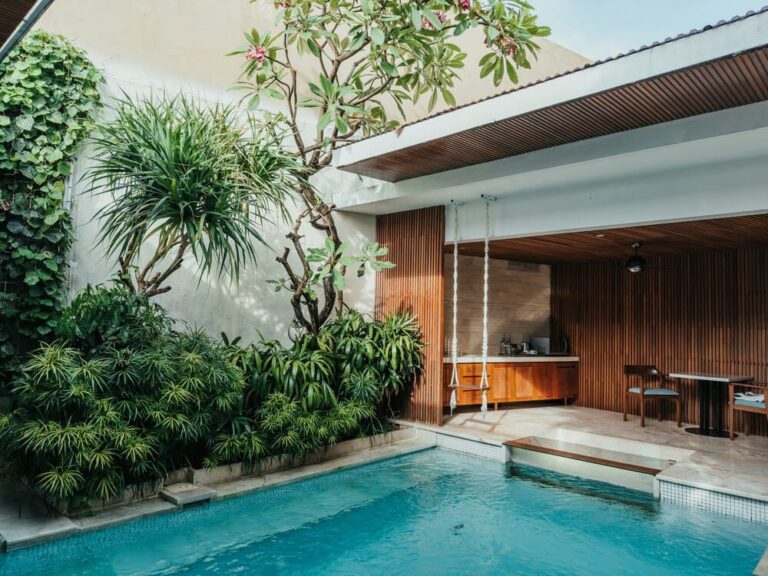Indonesia has become an increasingly attractive destination for entrepreneurs and foreign investors, thanks to its growing economy and strategic location. However, starting a business in this vibrant market requires careful consideration of its legal framework, particularly when choosing the right business entity. In Indonesia, there are several options available, including PT (Limited Liability Company), CV (Limited Partnership), Representative Office, and PT PMA (Foreign-Owned Limited Liability Company). Each comes with its own advantages and disadvantages, making it essential to select one that aligns with your business goals and industry.
- Perseroan Terbatas (PT – Limited Liability Company)
- Commanditaire Vennootschap (CV – Limited Partnership)
- Representative Office (Kantor Perwakilan – KPPA)
- Perseroan Terbatas Penanaman Modal Asing (PT PMA – Foreign-Owned Limited Liability Company)
- Choosing the Right Business Entity for Your Goals
- Conclusion
Perseroan Terbatas (PT – Limited Liability Company)

A PT, or Limited Liability Company, is one of the most popular choices among local and foreign entrepreneurs in Indonesia. It operates as a separate legal entity, which means that the company’s liabilities are distinct from those of its shareholders. This structure is particularly suitable for businesses aiming for long-term growth and credibility.
One of the main benefits of establishing a PT is the limited liability protection it offers. Shareholders are only responsible for the company’s debts to the extent of their capital contributions, reducing personal risk. Additionally, a PT is considered more credible and professional, which can be advantageous when dealing with larger clients or financial institutions.
On the downside, setting up a PT requires a higher initial investment compared to other entities, and the process can be complex. It involves fulfilling various legal and administrative requirements, such as preparing a deed of establishment and registering the company with relevant authorities. Despite these challenges, a PT’s flexibility makes it suitable for a wide range of industries, including technology startups, retail, and manufacturing.
Commanditaire Vennootschap (CV – Limited Partnership)

A CV, or Limited Partnership, is another option available in Indonesia. Unlike a PT, a CV is not a separate legal entity, which means that its active partners are personally liable for the company’s obligations. This structure is often chosen by small-scale businesses or family-owned enterprises due to its simplicity and lower setup costs.
One of the key advantages of a CV is the absence of strict capital requirements. Entrepreneurs with limited funding can establish a CV without needing to meet significant financial thresholds. Additionally, the process of setting up a CV is straightforward, making it an appealing choice for businesses that prioritize quick and cost-effective establishment.
However, the unlimited liability borne by active partners can pose significant risks, particularly for businesses operating in volatile or high-risk industries. CVs are also perceived as less professional compared to PTs, which may limit their ability to attract larger clients or secure financing. Despite these limitations, CVs remain a practical choice for local trading businesses, small retailers, and traditional services.
Representative Office (Kantor Perwakilan – KPPA)

For foreign companies looking to explore the Indonesian market without engaging in direct business activities, a Representative Office (KPPA) is an excellent option. This type of entity allows foreign companies to establish a presence in Indonesia for non-commercial purposes, such as market research, promotional activities, or acting as a liaison.
A Representative Office is relatively easy to set up and does not require paid-up capital, making it a low-risk way for foreign companies to enter the market. It provides an opportunity to gain insights into local market dynamics and establish connections without committing to full-scale operations. However, its activities are limited. Representative Offices are not allowed to generate revenue, sign contracts, or conduct sales, which can be a drawback for businesses seeking direct market engagement.
This structure is most suitable for industries like consulting, market research, and international trade promotion. Companies that use Representative Offices often transition to more comprehensive business entities, such as PT PMAs, once they are ready to scale their operations in Indonesia.
Perseroan Terbatas Penanaman Modal Asing (PT PMA – Foreign-Owned Limited Liability Company)

A PT PMA is the preferred choice for foreign investors aiming to establish a fully operational business in Indonesia. This entity allows foreign ownership, subject to the regulations outlined in Indonesia’s Negative Investment List (DNI). It provides the legal framework necessary for conducting commercial activities and scaling operations in the local market.
The primary advantage of a PT PMA is its scalability and access to Indonesia’s rapidly growing economy. Foreign investors can own up to 100% of the company in permitted sectors, making it an attractive option for industries like technology, renewable energy, and hospitality. Additionally, a PT PMA enjoys the credibility and legal protections associated with limited liability companies, which can help attract investors and build customer trust.
Setting up a PT PMA, however, involves navigating a complex legal process. It requires approval from the Indonesian Investment Coordinating Board (BKPM), as well as meeting minimum capital requirements. Despite these challenges, a PT PMA is often the best choice for foreign investors looking to establish a strong foothold in Indonesia.
Choosing the Right Business Entity for Your Goals

Selecting the right business entity in Indonesia depends on several factors, including your business objectives, industry, and budget. If you’re planning to operate on a small scale or test the waters, a CV or Representative Office might be the most practical choice. These entities offer simplicity and low setup costs, allowing you to gain experience in the market without significant financial risk.
For foreign investors aiming for long-term growth and scalability, a PT PMA is often the ideal option. It provides full operational capabilities and access to the local market, making it suitable for industries with high growth potential. However, the process of establishing a PT PMA can be resource-intensive, so it’s essential to work with trusted advisors to navigate the complexities.
Finally, for entrepreneurs seeking credibility and flexibility, a PT offers a balanced approach. While it requires more investment and regulatory compliance than a CV, it provides the professionalism and protection needed to build a sustainable business.
Conclusion
Understanding the different business entities available in Indonesia is a crucial step for foreign investors and entrepreneurs. Whether you choose a PT, CV, Representative Office, or PT PMA, your decision should align with your business goals and industry requirements. For those looking to tap into Indonesia’s dynamic market, the right business structure can set the foundation for long-term success.
If you’re ready to start your business journey in Indonesia, Noethera can guide you through the process, ensuring compliance and efficiency at every step. Contact us today to learn how we can help you establish the perfect business entity for your needs.







